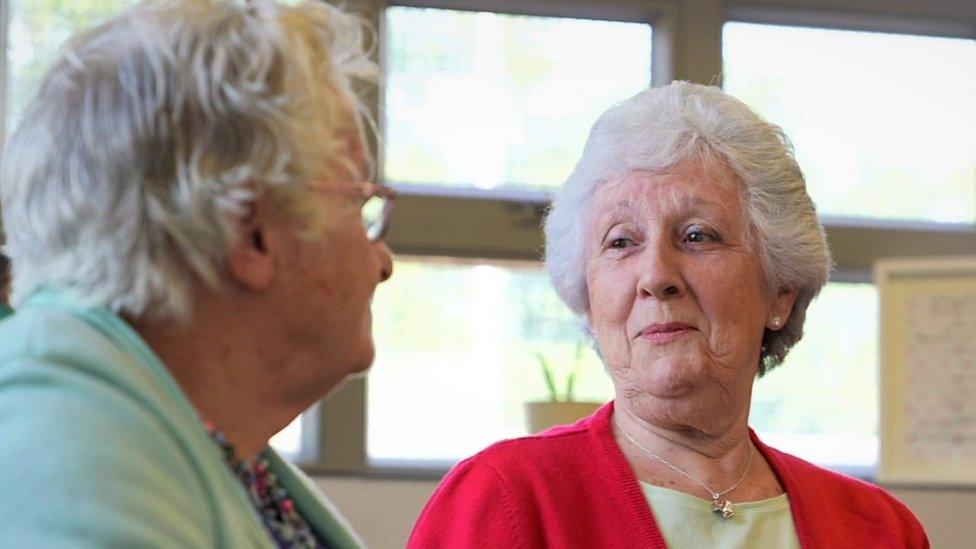Heating on prescription call for Wales' medically vulnerable
- Published
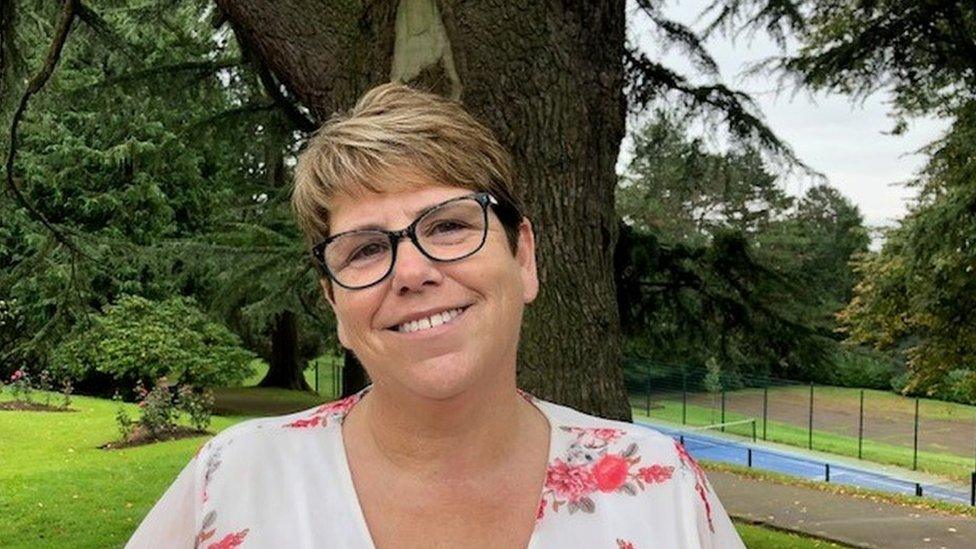
Louise has to take medication every day for her asthma
People with serious lung conditions who struggle to afford their energy bills should get heating on prescription, a charity has said.
Joseph Carter of Asthma and Lung UK Cymru said heating should be looked at as if it were a medical necessity.
A Public Health Wales report found almost a third of excess winter deaths were "due to cold housing conditions", external.
The Welsh government said it funded energy efficiency schemes for people with certain health conditions.
Louise, from Newport, has to take daily medication for her asthma and cold weather makes her condition worse.But the 53-year-old social care worker said cost of living pressures meant she will be forced to ration her heating this winter.
"You can't have all the radiators on, so we'll just have a burst in the bathroom or one of the bedrooms, on for an hour to take the chill off," she said.
Louise and her husband both work full time, but they are still behind with their energy bills after last winter.Energy costs have come down recently, but they remain higher than they were before the Ukraine war.
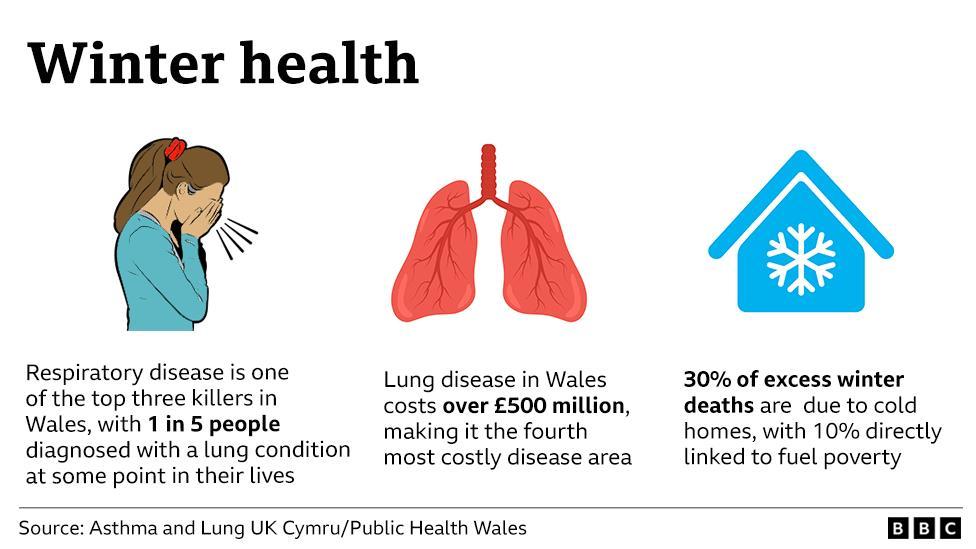
Most of the extra help offered by the UK and Welsh governments last winter has now ended and many people have found their financial resilience eroded over the past two years by high inflation."I go around very positive, smile on my face all the time and I can accept a challenge," said Louise."But there are times when I go home and I think, 'how much more can people take?'."
Mr Carter said: "Winter is a really dangerous time for people with lung conditions. If you have a lower temperature in your home you are more likely develop respiratory viruses, you're more likely to have damp and mould, which themselves cause respiratory infections."
He wants "targeted support", including prescriptions from health workers, to keep people's houses warm.
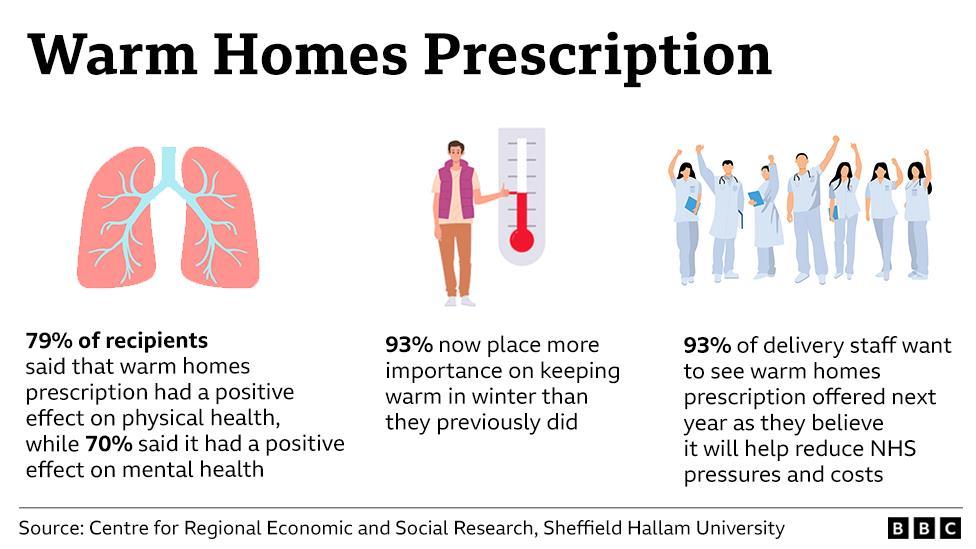
Parts of England and Scotland have been involved in "warm home prescriptions" trials, where NHS staff identify medically vulnerable people on low incomes who had their heating bills paid.Energy Systems Catapult, an agency promoting energy innovation to reduce carbon emissions, is co-ordinating the pilots.
Its fair future leader Dr Rose Chard said the pilot worked well and brought together the NHS and the energy sector.More than 800 people in Aberdeen, Gloucestershire, London and Tees Valley received a warm home prescription in the 2022-23 pilot scheme, which was funded by energy company BP.
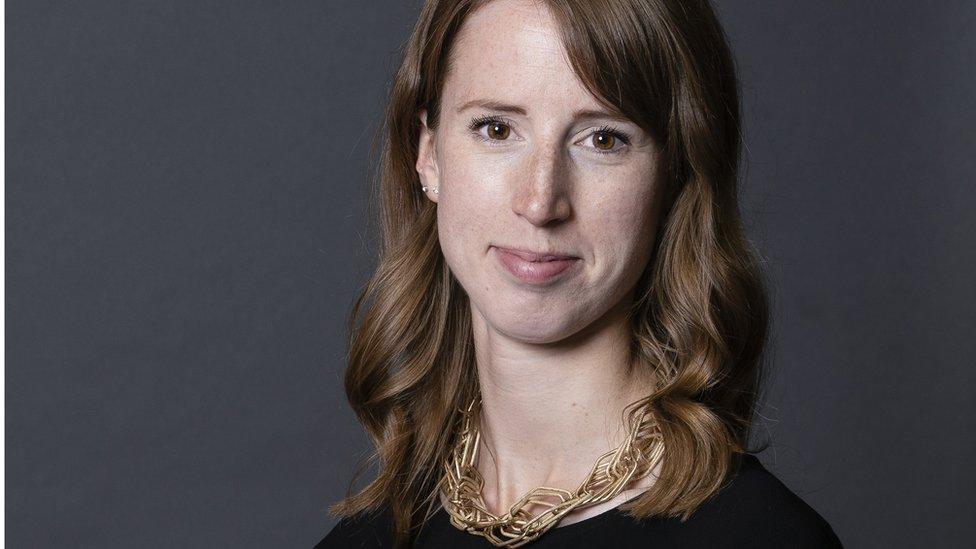
Dr Rose Chard believes the scheme could help save the NHS money
Dr Chard said: "Delivery staff have found it quick and easy to administer and residents have said that their health, their mental, and their physical health, has improved as a result of taking part."She believes the scheme could be cost effective on a bigger scale by keeping people healthy during the winter and easing pressure on the NHS.
An assessment by Sheffield Hallam University found a bigger sample size would be needed to assess whether the scheme could save the NHS money.It also found that it brought measurable benefits to people involved, providing £5 of "social value" in terms of wellbeing for every £1 spent, external.
Dr Chard is keen to expand the pilot to Wales: "We would love, of course, to see support from Welsh government for the services that support fuel poor households in this way but local health boards, as well as local authorities and public health teams, really need to be on board."
The Welsh government said: "We are funding energy efficiency schemes, including direct support for people with certain health conditions, where their condition could be made worse by living in a cold home."
Wales' Warm Homes programme, external provides funding for energy efficiency measures for people receiving certain means-tested benefits or who have chronic respiratory, circulatory or mental health conditions.

TRAIN, COMPETE, SLEEP AND REPEAT: Welcome to the world of competitive ballroom dancing
INVISIBLE DISABILITIES: Spreading awareness and helping others

Related topics
- Published31 August 2023

- Published21 August 2023
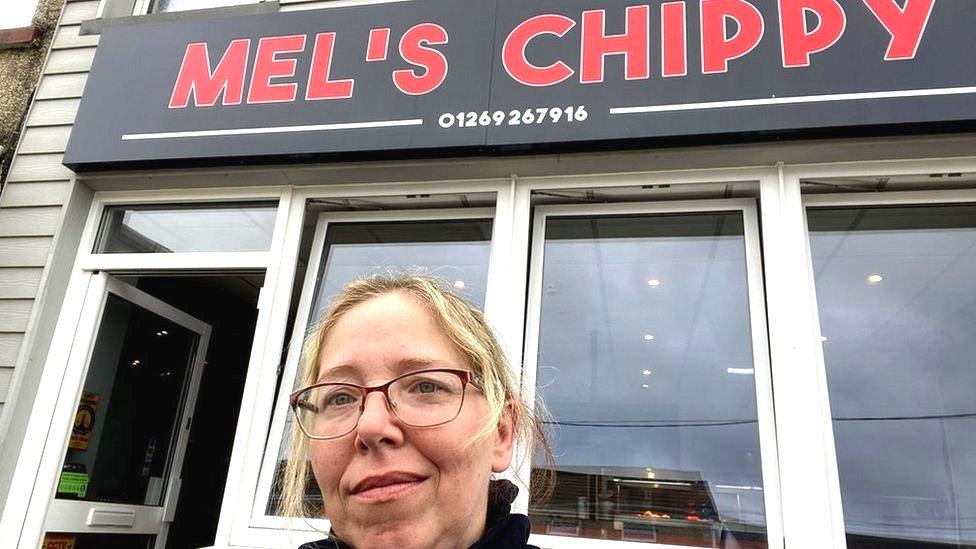
- Published19 June 2023
